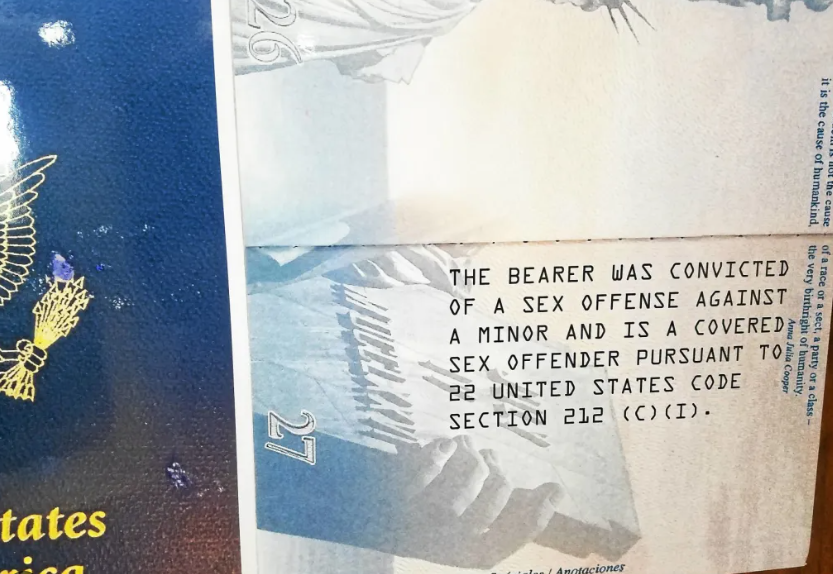Passports being revoked for Sex Offenders

The US State Department has begun revoking the passports of registered child sex offenders. The change has been made in order to comply with a law passed last year, the International Megan’s Law. Under the new law, registered sex offenders who have been convicted of an offense against a minor will no longer be able to use their current passports. Instead, they will have to apply for new sex offender passports that identify them as registered child sex offenders. The new passports will have a statement printed on the inside back cover that reads, “The bearer was convicted of a sex offense against a minor, and is a covered sex offender pursuant to 22 United States Code Section 212b(c)(l).”
The new law will not limit the ability of registered child sex offenders to leave the country. However, the identifying marker in the new passports is very likely to prevent affected people from being allowed to enter other countries. The only convicted sex offenders in the United States who are not able to get passports at all are people who have been convicted of sex tourism crimes. (Most convicted felons are able to get normal passports in the United States. The main exception is people who have been convicted of international drug trafficking.)
The goal of the change is to help curb child exploitation overseas. It is a noble and worthy goal, but it is unclear just how much effect the law will have on children abroad.
The International Megan’s Law is named after Megan Kanka, a 7-year-old girl who was murdered by a registered child sex offender back in 1994. The terrible crime led to the creation of numerous state sex offender registries. Currently, every US state, the US territories, and many American Indian nations have sex offender registries. Those registries can all be accessed and searched through the FBI website.
If you are a registered child sex offender, you should expect to receive a letter letting you know that your passport has been revoked. If you haven’t yet received such a letter, you may still want to apply for a new passport, especially if you have international travel plans in the coming months. Keep in mind that this new regulation does not apply to all registered sex offenders, just people who are registered child sex offenders.
Crimes that can land you on a child sex offender registry include molestation of a minor, sexual conduct with a minor, kidnapping a child, engaging in lewd acts in the presence of a minor, and viewing or sharing child pornography (whether inadvertently or on purpose). In 29 states, having sex with a teen when you are also a teen can also land you on the list. So can posting naked pictures of yourself online if you are underage.
